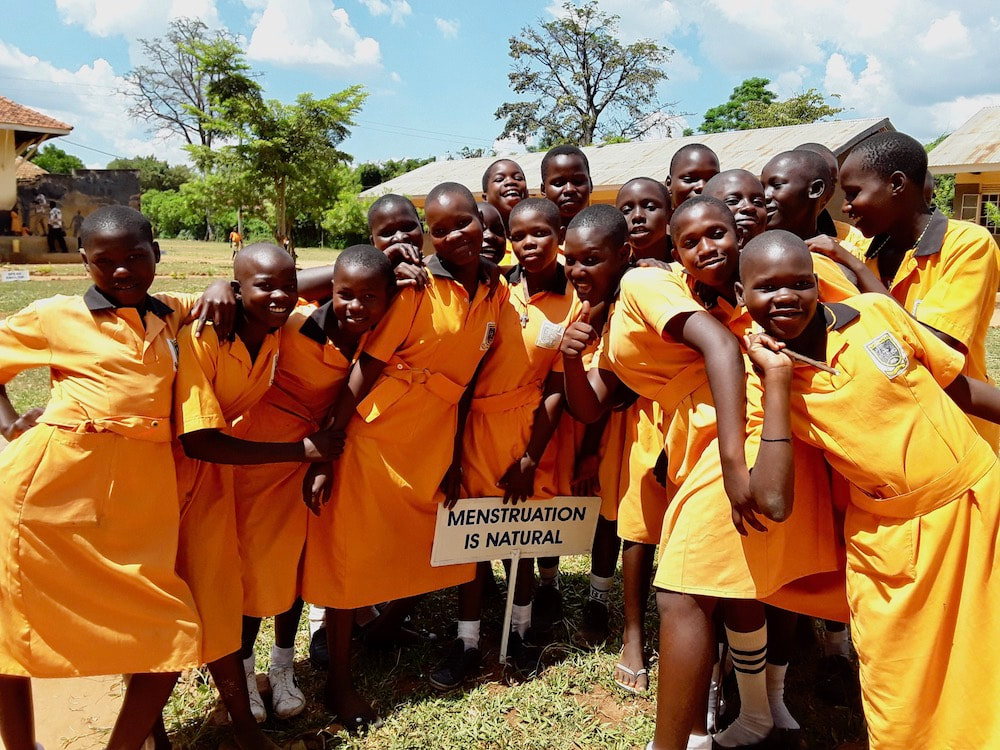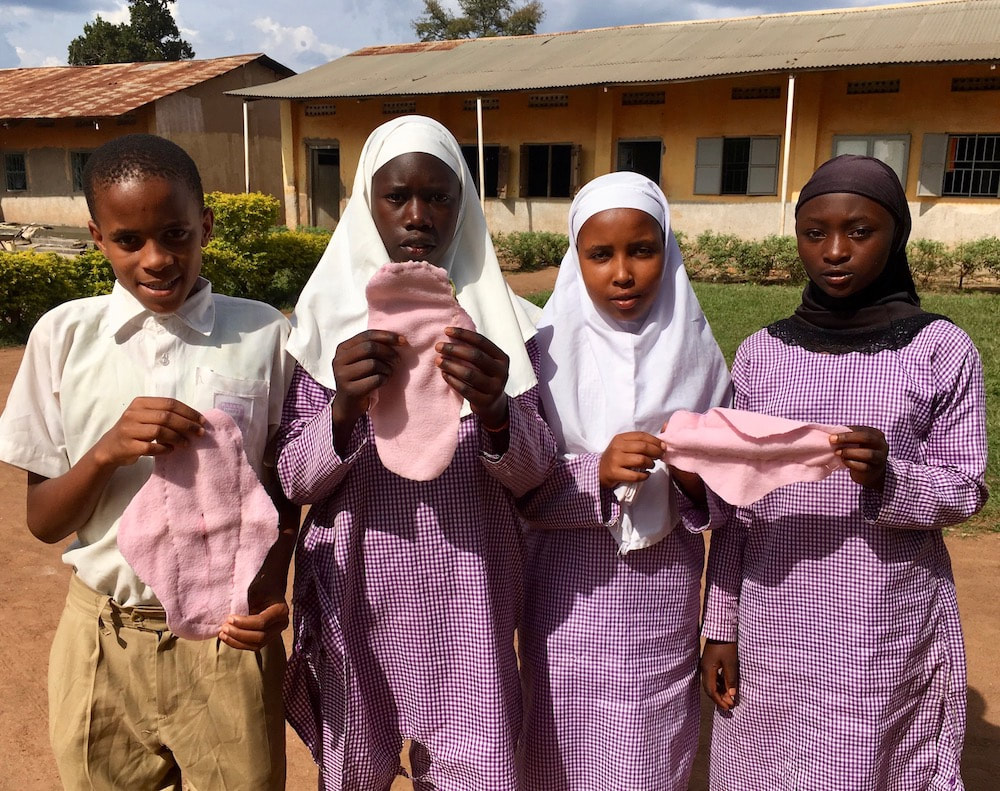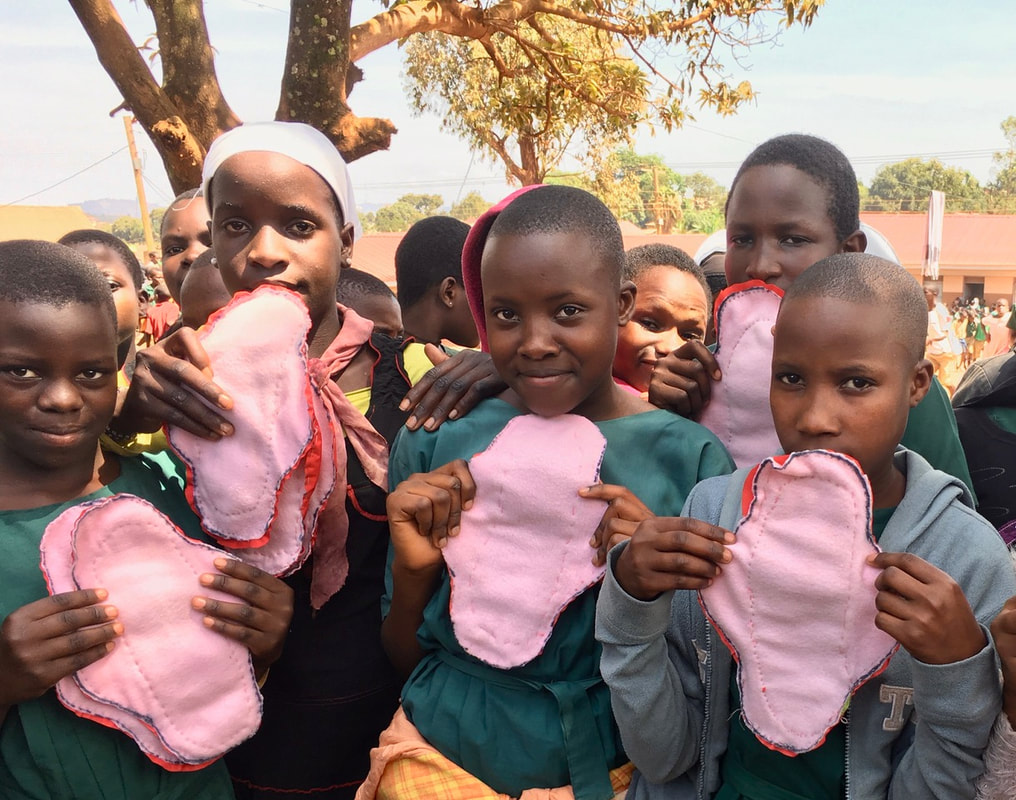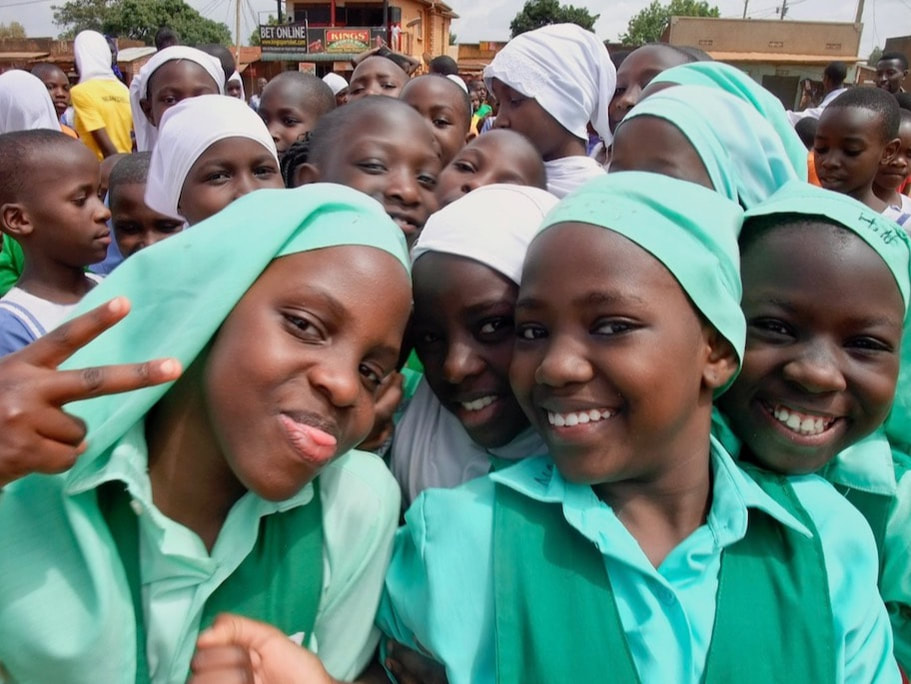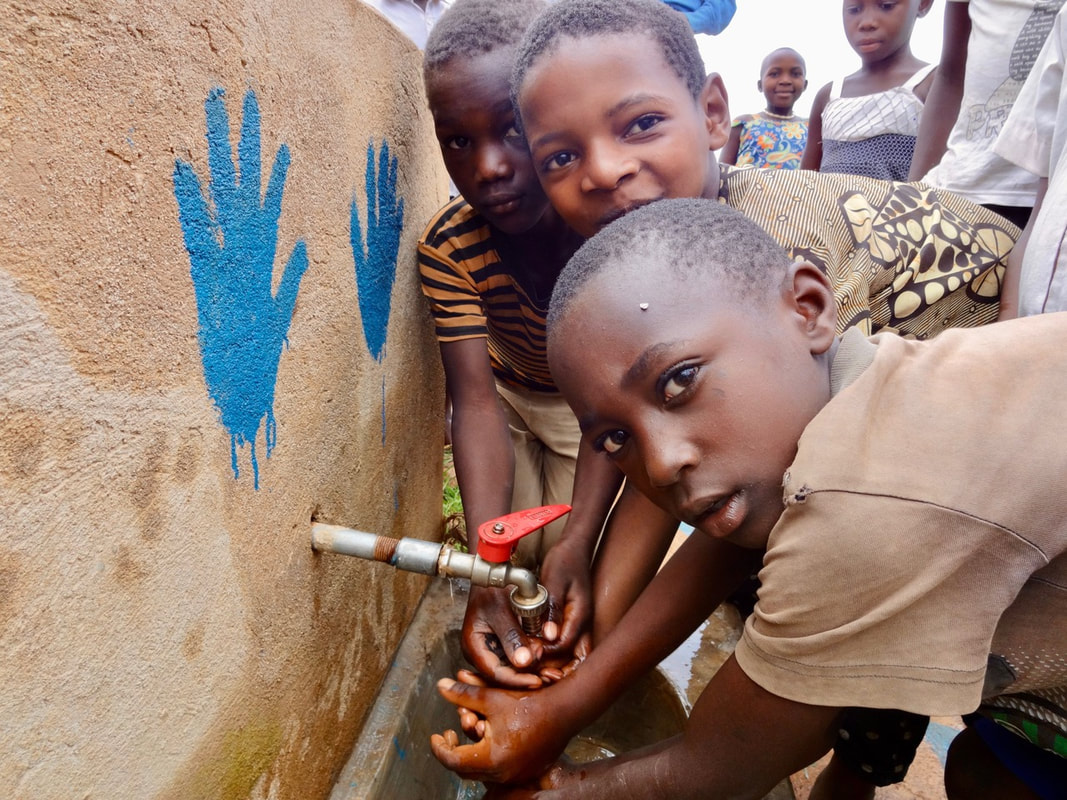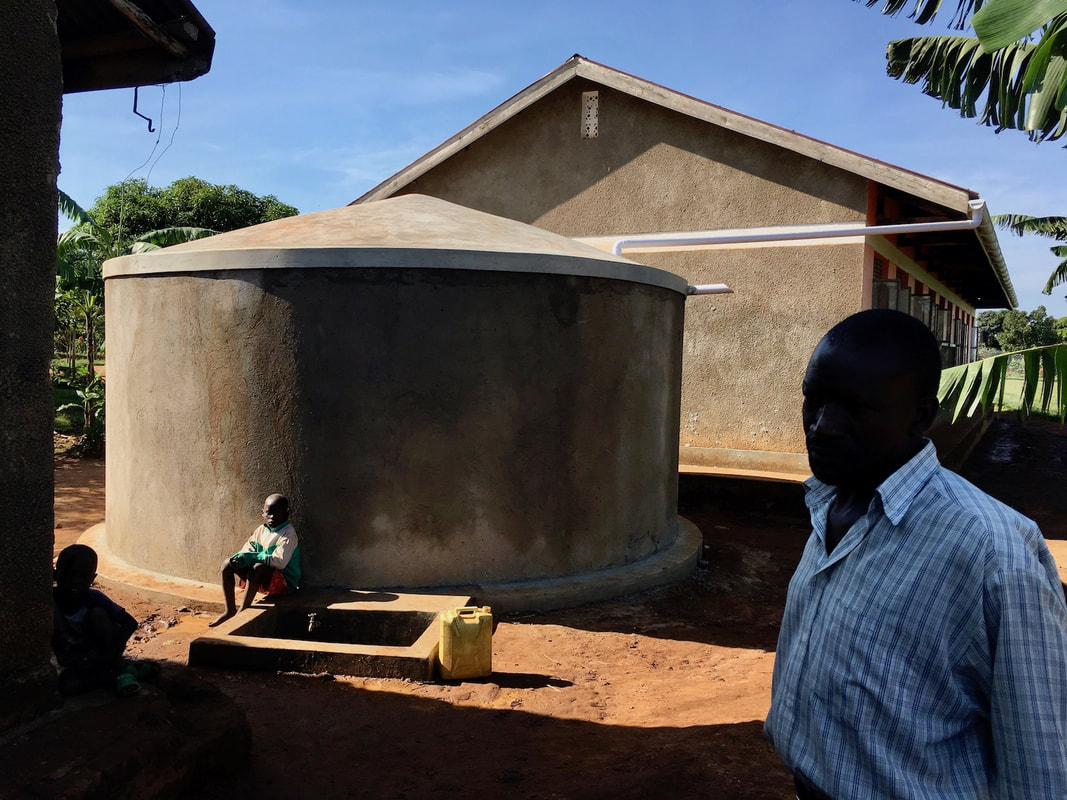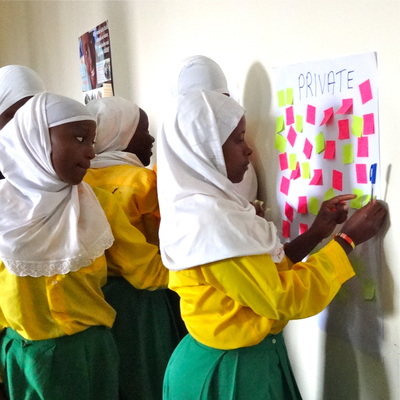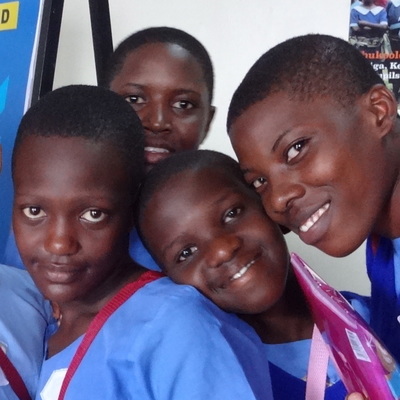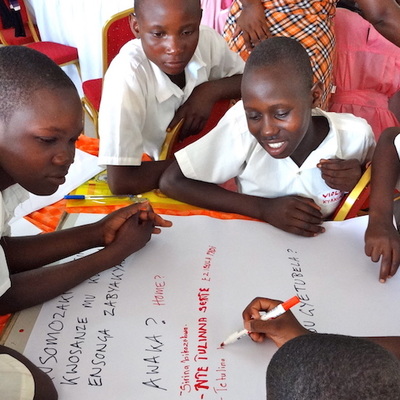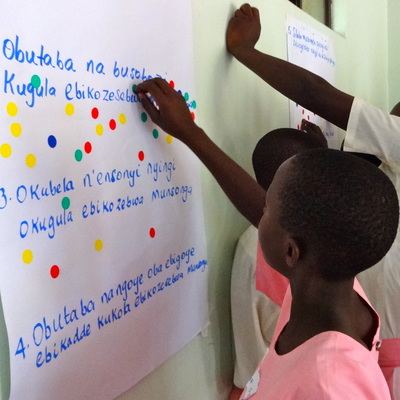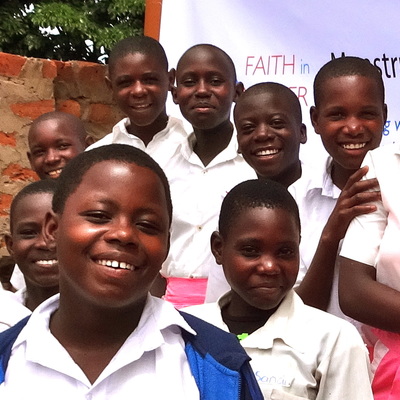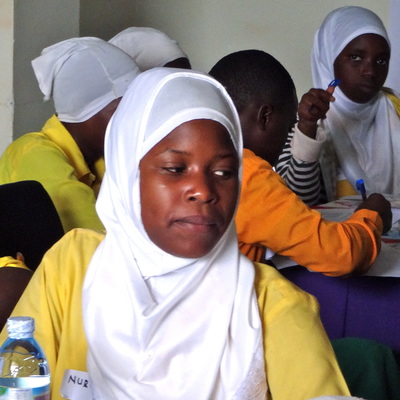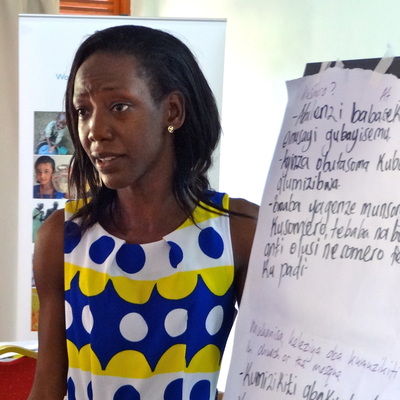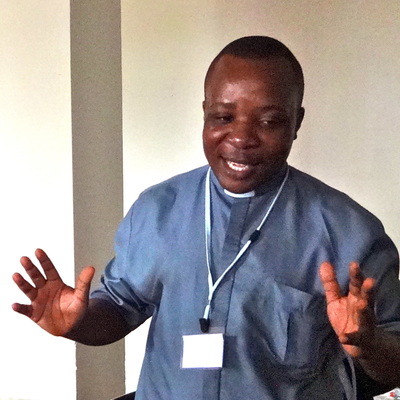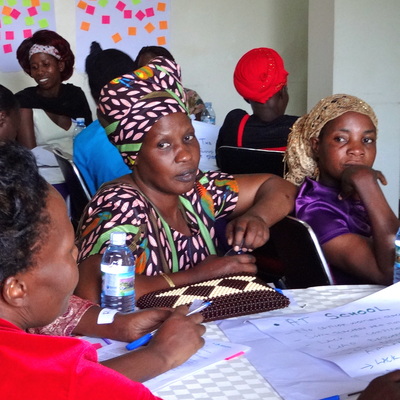Dignity for Girls: Helping girls build a better future
|
Imagine not having any sanitary protection when your period starts. Perhaps you don't even have knickers. No one has taught you about menstruation. Your school toilets don't have water and the doors don't close properly.
That's the reality for too many girls in the world's poorest countries. That's why we are working with faith groups in Uganda to tackle ignorance, misinformation, stigma and shame. We are also helping them develop policies and practice to support girls in their schools to stay in education. We're working with faith-managed schools, faith-based women's groups and youth groups, as well as faith leaders themselves, to change the conversation on menstruation. |
I used to think this issue was not important. Now I know it is very, very important. We must 'I learned how a girl can manage her menstruation... And they told us that menstruation is not a disease but is normal |
Watch our video on our Dignity for Girls programme
|
Incorporating menstrual health has become a critical component of WASH (water, sanitation and hygiene) programmes in recent years.
This short video illustrates why this subject – unspoken, ignored, hidden for many years – is important. It also shows how working with faith groups, which run so many schools in the Global South, enables us to greatly scale up our impact and make a real difference to the lives and future prospects of adolescent girls. |
|
Why starting their periods can be a serious challenge for girls from poor families
|
Many girls in poor communities face great difficulties in managing their periods because of lack of information, lack of resources (such as sanitary pads or clean school toilets) and a crippling sense of stigma and shame.
Studies show that a significant proportion of girls often miss school every month and some even drop out altogether. Girls who drop out of school early are more likely to become teenage mothers or child brides and remain trapped in a cycle of poverty. Our Dignity for Girls programme is the first to work with faith groups in Uganda to tackle this problem and help keep girls in education. We have been working with three faiths in Uganda – the Catholic Church, the Church of Uganda and the Uganda Muslim Supreme Council – all major providers of education and key influencers of opinion. Together, we are:
|
Did you know...?Girls in sub-Saharan Africa miss an estimated 10%-20% of school time because of difficulties managing their periods.
Fewer than two thirds of Ugandan girls complete primary school and even fewer secondary. Children of uneducated mothers are nearly three times more likely to die before age five than those born to mothers with secondary education. |
Working in Uganda with Catholic, Anglican and Muslim schools and communities
|
We are delighted to report great results from our Dignity for Girls programme in Uganda. We're working with three major faith groups – the Catholic Church, Church of Uganda and the Muslim community – to reduce the rate of girls dropping out of education by helping them feel more confident and empowered to manage their periods well. The programme has so far:
|
This programme began after we held the first consultations of faith groups
in Uganda on menstrual health in 2016. Read more about them below.
in Uganda on menstrual health in 2016. Read more about them below.
First faith consultations on MHMIn 2016, we conducted the first consultation of faith groups in Uganda on how poor menstrual hygiene management (MHM) affects girls' education, health and wellbeing.
This was the first time that faith groups had been consulted on this issue even though they are major education providers in Uganda, and are involved in half of Uganda's schools. The response from the Christian, Muslim and Bahai faith representatives who took part was overwhelmingly positive. They recognised the importance of this issue to girls' health, wellbeing and education, and they endorsed our idea of a faith-based toolkit on menstrual hygiene management for faith schools. |
Download our Uganda faith consultation report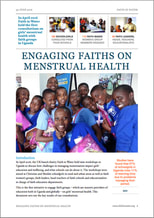
This report outlines the findings of our consultations of 162 schoolgirls, 83 faith leaders, teachers and educationalists and 115 members of faith women's groups, in nine workshops in both urban and rural areas.
Angela Nakafeero, Gender Technical Advisor at Uganda's Ministry of Education, Science, Technology and Sports, was a keynote speaker and said: 'We are aware that over half of our schools are founded by religious groups. We are looking forward to this toolkit for religious schools. It is very exciting for us. We feel that this contribution will complement some of our interventions.’ You can access the full report of our menstrual health workshops with Ugandan faith groups by clicking here. (NB: This is a 4.3MB document.) |
Girls' biggest challengesWe also consulted 162 Christian and Muslim schoolgirls aged 11-13 to understand better what their greatest challenges, worries and concerns were about their menstruation. Although the group was fairly small, it produced some interesting results.
Fear, ignorance and stigmaGirls were very worried about being mocked by boys over menstruation – particularly girls in rural schools. Overall, 46% of girls said this was one of their biggest concerns but this figure leapt to 73% of rural girls.
Another major problem is ignorance and misunderstanding about menstruation. A high proportion – 41% – said they had no idea what is happening when their period started. A quarter of them thought they were suffering from a terrible disease at the time, and 13% still think menstruation is a disease. In addition:
|
Images from our Uganda workshopsMHM poster presentation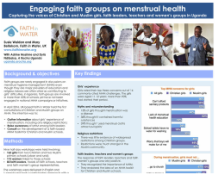
Faith in Water was invited to submit a poster presentation to the 5th Annual Virtual Conference on Menstrual Hygiene Management.
We focused on the response of girls in our Uganda workshops. You can check out our poster presentation here. |
‘We need to
break the silence on menstruation, just as we did
on HIV/AIDS.’
– Participant, Faith Leaders’ Conference
‘Religious leaders need to share this and own it.’
– Participant, Faith Leaders’ Conference
‘Menstruation is a gift. God has elected us as co-creators and blessed is the fruit of our womb.’
– Rev Canon Diana Nkesiga, All Saints Cathedral
– Participant, Faith Leaders’ Conference
‘Religious leaders need to share this and own it.’
– Participant, Faith Leaders’ Conference
‘Menstruation is a gift. God has elected us as co-creators and blessed is the fruit of our womb.’
– Rev Canon Diana Nkesiga, All Saints Cathedral
